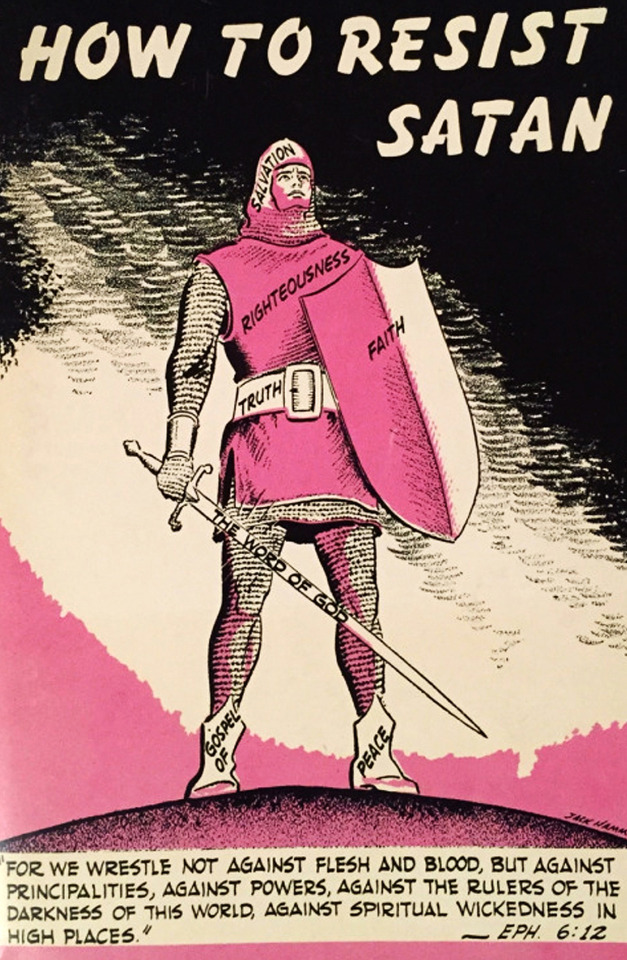Text



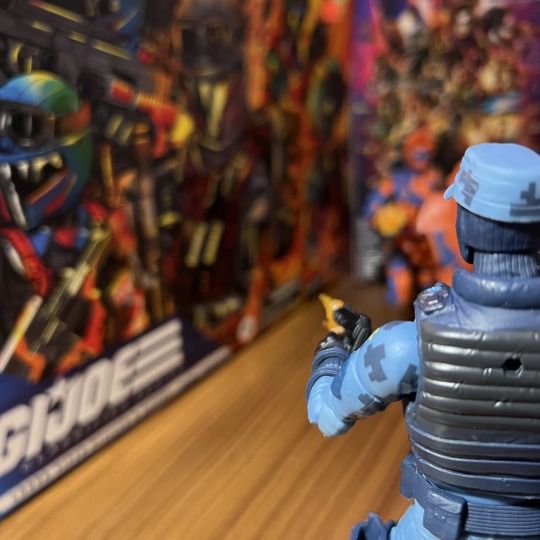
A few new ones...
Getting that Alley Viper to stay in that pose, while delicate... just goes show the play-ability of the line.
1 note
·
View note
Text










G.I. Joe Classified... Cobra style.
1 note
·
View note
Text



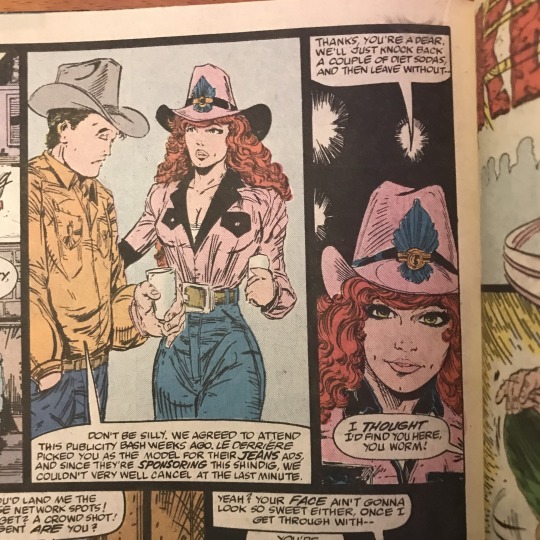
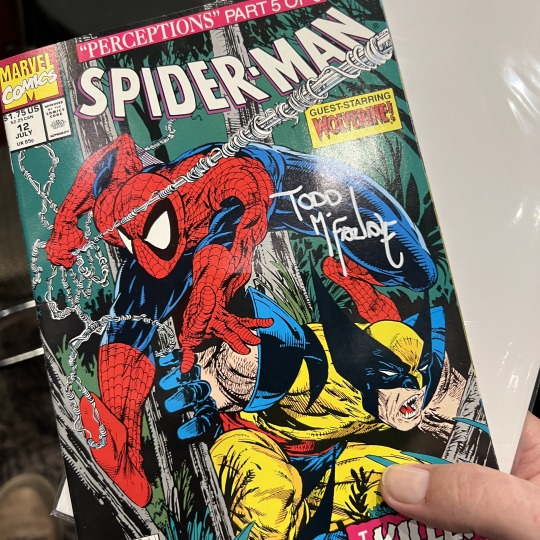
Story time...
During the start of COVID-time, I decided to I wanted to re-collect some comics I had in the early 1990s. I didn't want reprints, I wanted originals.
I wanted to go through Todd McFarlane's Marvel work, starting with Daredevil #241 thru Spider-Man #16 (and then Image's Spawn #1-#25 plus the Violator 3-issue series)... and if you know about his run there, well... there were some pricy titles to collect. However, I wanted to do it, so I did it...
Also, due to COVID-time and my disability, I haven't left the apartment aside from medical appointments, voting and a few random times going out for food and eating outdoors [for the vast majority of the time]. We're both take it quite seriously because I really don't need to get any more sick than I am already. Yes, we're always masking when not in the apartment (and sometimes in the apartment when we have contractors coming in to do work). And we're diligent about as well. We haven't gotten sick yet.
(tldr; I basically haven't left the house unless I had to since Nov. 2020)
Fast forward to 2023 and after some life altering events, we decided to order VIP passes for Calgary Comics+Entertainment Expo, all 4 days. We figured with the early access our odds of not "getting sick" were okay. And also to save my leg from too much stress, we planned to rent a wheelchair.
Fast forward to 2024 and we have our VIP passes to the Calgary Comics+Entertainment Expo... and then McFarlane was announced as a late guest. I thought to myself, sure... I'll get an autograph. I can do that.
But as time ticked on, I felt like naaaah... there are bigger fans who could use waiting in line more than myself. An autograph would be nice but I didn't need one.
Then Fan Expo runs a VIP only context to win free autographs from him. Well then! That I could sign up for. My beloved partner, also a big comics book fan (more on the X-Men side of things [and she was able to get all of the X-Men '97 guests who were here, along with the original animated series Producer and Director autographs... and a selfie with Beast!]), also entered.
We both won (of course I'd get ticket 23... she got 24).
Now I needed to pull some "cool covers" so that we could make some choices (picture 1, above).
She chose Spider-Man #12 (and diligently read that 5-book series to get prepared for the day). I wanted to do Spider-Man #8 (for the very local tie-in) but we didn't exactly need two books signed from that series. So... what to choose, what to choose...
Amazing Spider-Man #311 (and it didn't even make the short list... not in the 1st pic) got the pick. It is a cool cover to be sure but I chose it for the nod to late 1980s Cowboy/Western fashion... and since I've grown up in Calgary, I was very aware of that reference (annual cowboy cosplay celebrations tend to do that... yay Calgary Stampede! [hey, if the comic+entertainment fandom has cosplay for CCEE, why not call the say the same sort of thing for the Stampede... this isn't a negative thing]).
When I told McFarlane why I chose the book I did, I got a chuckle and an "Oh wow!".
The only downside is that due to my disability I'm unable to attend day 4 but my beloved partner gets enjoy a day without pushing me around in a wheelchair (averaging over 9000 steps each of the 3 days)... give her arms and legs a big of a break.
But we did get quite lucky in our timings for things and we appreciated the experiences.
So long as we don't "get sick" and recovery time for this body o'mine doesn't take too long, then I think we can plan to attend again next year.


#Calgary#calgaryexpo#Calgary Comic+Entertainment Expo#CCEE#todd mcfarlane#Spider-Man#Amazing Spider-Man#2024#x men 97#x men#YYC#Larry Houston#George Buza#alison sealy smith#matthew waterson#aj locascio#comics
5 notes
·
View notes
Text
The tax sharks are back and they’re coming for your home

I'm touring my new, nationally bestselling novel The Bezzle! Catch me TODAY (Apr 27) in MARIN COUNTY, then Winnipeg (May 2), Calgary (May 3), Vancouver (May 4), and beyond!

One of my weirder and more rewarding hobbies is collecting definitions of "conservativism," and one of the jewels of that collection comes from Corey Robin's must-read book The Reactionary Mind:
https://en.wikipedia.org/wiki/The_Reactionary_Mind
Robin's definition of conservativism has enormous explanatory power and I'm always finding fresh ways in which it clarifies my understand of events in the world: a conservative is someone who believes that a minority of people were born to rule, and that everyone else was born to follow their rules, and that the world is in harmony when the born rulers are in charge.
This definition unifies the otherwise very odd grab-bag of ideologies that we identify with conservativism: a Christian Dominionist believes in the rule of Christians over others; a "men's rights advocate" thinks men should rule over women; a US imperialist thinks America should rule over the world; a white nationalist thinks white people should rule over racialized people; a libertarian believes in bosses dominating workers and a Hindu nationalist believes in Hindu domination over Muslims.
These people all disagree about who should be in charge, but they all agree that some people are ordained to rule, and that any "artificial" attempt to overturn the "natural" order throws society into chaos. This is the entire basis of the panic over DEI, and the brainless reflex to blame the Francis Scott Key bridge disaster on the possibility that someone had been unjustly promoted to ship's captain due to their membership in a disfavored racial group or gender.
This definition is also useful because it cleanly cleaves progressives from conservatives. If conservatives think there's a natural order in which the few dominate the many, progressivism is a belief in pluralism and inclusion, the idea that disparate perspectives and experiences all have something to contribute to society. Progressives see a world in which only a small number of people rise to public life, rarified professions, and cultural prominence and assume that this is terrible waste of the talents and contributions of people whose accidents of birth keep them from participating in the same way.
This is why progressives are committed to class mobility, broad access to education, and active programs to bring traditionally underrepresented groups into arenas that once excluded them. The "some are born to rule, and most to be ruled over" conservative credo rejects this as not just wrong, but dangerous, the kind of thing that leads to bridges being demolished by cargo ships.
The progressive reforms from the New Deal until the Reagan revolution were a series of efforts to broaden participation in every part of society by successively broader groups of people. A movement that started with inclusive housing and education for white men and votes for white women grew to encompass universal suffrage, racial struggles for equality, workplace protections for a widening group of people, rights for people with disabilities, truth and reconciliation with indigenous people and so on.
The conservative project of the past 40 years has been to reverse this: to return the great majority of us to the status of desperate, forelock-tugging plebs who know our places. Hence the return of child labor, the tradwife movement, and of course the attacks on labor unions and voting rights:
https://pluralistic.net/2022/11/06/the-end-of-the-road-to-serfdom/
Arguably the most potent symbol of this struggle is the fight over homes. The New Deal offered (some) working people a twofold path to prosperity: subsidized home-ownership and strong labor protections. This insulated (mostly white) workers from the two most potent threats to working peoples' lives and wellbeing: the cruel boss and the greedy landlord.
But the neoliberal era dispensed with labor rights, leaving the descendants of those lucky workers with just one tool for securing their American dream: home-ownership. As wages stagnated, your home – so essential to your ability to simply live – became your most important asset first, and a home second. So long as property values rose – and property taxes didn't – your home could be the backstop for debt-fueled consumption that filled the gap left by stagnating wages. Liquidating your family home might someday provide for your retirement, your kids' college loans and your emergency medical bills.
For conservatives who want to restore Gilded Age class rule, this was a very canny move. It pitted lucky workers with homes against their unlucky brethren – the more housing supply there was, the less your house was worth. The more protections tenants had, the less your house was worth. The more equitably municipal services (like schools) were distributed, the less your house was worth:
https://pluralistic.net/2021/06/06/the-rents-too-damned-high/
And now that the long game is over, they're coming for your house. It started with the foreclosure epidemic after the 2008 financial crisis, first under GW Bush, but the in earnest under Obama, who accepted the advice of his Treasury Secretary Timothy Geithner, who insisted that homeowners should be liquidated to "foam the runways" for the crashing banks:
https://pluralistic.net/2023/03/06/personnel-are-policy/#janice-eberly
Then there are scams like "We Buy Ugly Houses," a nationwide mass-fraud outfit that steals houses out from under elderly, vulnerable and desperate people:
https://pluralistic.net/2023/05/11/ugly-houses-ugly-truth/#homevestor
The more we lose our houses, the more single-family homes Wall Street gets to snap up and convert into slum properties, aslosh with a toxic stew of black mold, junk fees and eviction threats:
https://pluralistic.net/2022/02/08/wall-street-landlords/#the-new-slumlords
Now there's a new way for finance barons the steal our houses out from under us – or rather, a very old way that had lain dormant since the last time child labor was legal – "tax lien investing."
Across the country, counties and cities have programs that allow investment funds to buy up overdue tax-bills from homeowners in financial hardship. These "investors" are entitled to be paid the missing property taxes, and if the homeowner can't afford to make that payment, the "investor" gets to kick them out of their homes and take possession of them, for a tiny fraction of their value.
As Andrew Kahrl writes for The American Prospect, tax lien investing was common in the 19th century, until the fundamental ugliness of the business made it unattractive even to the robber barons of the day:
https://prospect.org/economy/2024-04-26-investing-in-distress-tax-liens/
The "tax sharks" of Chicago and New York were deemed "too merciless" by their peers. One exec who got out of the business compared it to "picking pennies off a dead man’s eyes." The very idea of outsourcing municipal tax collection to merciless debt-hounds fell aroused public ire.
Today – as the conservative project to restore the "natural" order of the ruled and the ruled-over builds momentum – tax lien investing is attracting some of America's most rapacious investors – and they're making a killing. In Chicago, Alden Capital just spent a measly $1.75m to acquire the tax liens on 600 family homes in Cook County. They now get to charge escalating fees and penalties and usurious interest to those unlucky homeowners. Any homeowner that can't pay loses their home.
The first targets for tax-lien investing are the people who were the last people to benefit from the New Deal and its successors: Black and Latino families, elderly and disabled people and others who got the smallest share of America's experiment in shared prosperity are the first to lose the small slice of the American dream that they were grudgingly given.
This is the very definition of "structural racism." Redlining meant that families of color were shut out of the federal loan guarantees that benefited white workers. Rather than building intergenerational wealth, these families were forced to rent (building some other family's intergenerational wealth), and had a harder time saving for downpayments. That meant that they went into homeownership with "nontraditional" or "nonconforming" mortgages with higher interest rates and penalties, which made them more vulnerable to economic volatility, and thus more likely to fall behind on their taxes. Now that they're delinquent on their property taxes, they're in hock to a private equity fund that's charging them even more to live in their family home, and the second they fail to pay, they'll be evicted, rendered homeless and dispossessed of all the equity they built in their (former) home.
It's very on-brand for Alden Capital to be destroying the lives of Chicagoans. Alden is most notorious for buying up and destroying America's most beloved newspapers. It was Alden who bought up the Chicago Tribune, gutted its workforce, sold off its iconic downtown tower, and moved its few remaining reporters to an outer suburban, windowless brick building "the size of a Chipotle":
https://pluralistic.net/2021/10/16/sociopathic-monsters/#all-the-news-thats-fit-to-print
Before the ghastly hotel baroness Leona Helmsley went to prison for tax evasion, she famously said, "We don't pay taxes; only the little people pay taxes." Helmsley wasn't wrong – she was just a little ahead of schedule. As Propublica's IRS Files taught us, America's 400 richest people pay less tax than you do:
https://pluralistic.net/2022/04/13/for-the-little-people/#leona-helmsley-2022
When billionaires don't pay their taxes, they get to buy sports franchises. When poor people don't pay their taxes, billionaires get to steal their houses after paying the local government an insultingly small amount of money.
It's all going according to plan. We weren't meant to have houses, or job security, or retirement funds. We weren't meant to go to university, or even high school, and our kids were always supposed to be in harness at a local meat-packer or fast food kitchen, not wasting time with their high school chess club or sports team. They don't need high school: that's for the people who were born to rule. They – we – were meant to be ruled over.

If you'd like an essay-formatted version of this post to read or share, here's a link to it on pluralistic.net, my surveillance-free, ad-free, tracker-free blog:
https://pluralistic.net/2024/04/26/taxes-are-for-the-little-people/#alden-capital
350 notes
·
View notes
Text


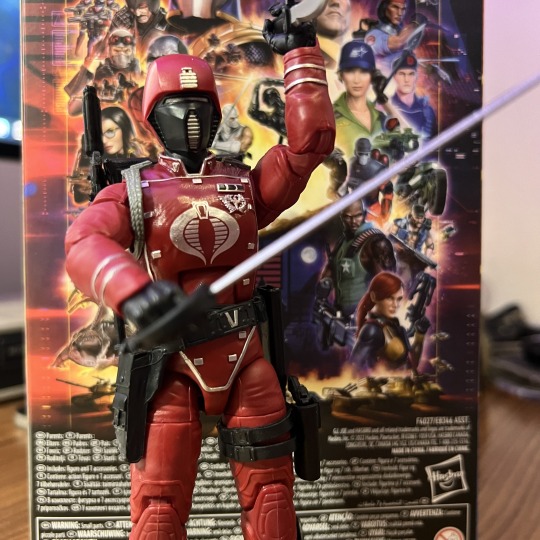







...added more G.I. Joe Classified figures today...
0 notes
Text

Fractal for Friday, April 26, 2024
3 notes
·
View notes
Text











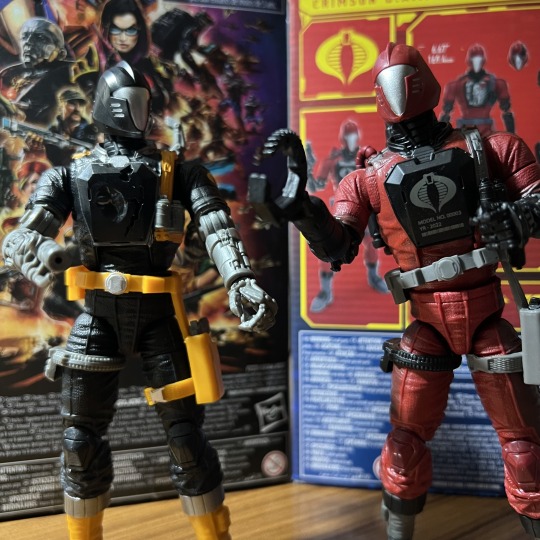


I... started collecting G.I. Joe Classified.
0 notes
Text
Vaguely reminds me of that part in the movie "Ghosts With Shit Jobs" scrubbing historical data of personal details....
ceci n'est pas une bannière

215 notes
·
View notes
Text

Fractal for Friday, April 19, 2024
1 note
·
View note
Text
Excellent! Now I have seating for my Cray-themed room...

D62 Lounge Chairs designed in 1928 by El Lissitzky and posthumously produced by Tecta in 1978.
77 notes
·
View notes
Text
...or as its sometimes phrased; "There is no ethical consumption/consumerism under Capitalism" ... but that doesn't mean we can't chose as best as we can.
No, “convenience” isn’t the problem
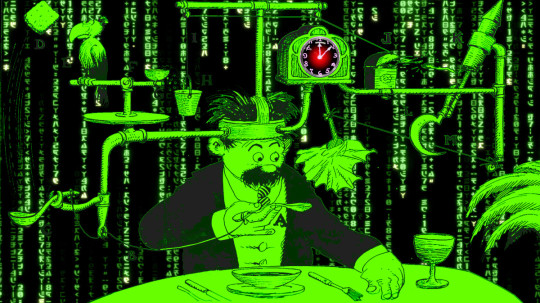
I'm touring my new, nationally bestselling novel The Bezzle! Catch me in CHICAGO (Apr 17), Torino (Apr 21) Marin County (Apr 27), Winnipeg (May 2), Calgary (May 3), Vancouver (May 4), and beyond!

Using Amazon, or Twitter, or Facebook, or Google, or Doordash, or Uber doesn't make you lazy. Platform capitalism isn't enshittifying because you made the wrong shopping choices.
Remember, the reason these corporations were able to capture such substantial market-share is that the capital markets saw them as a bet that they could lose money for years, drive out competition, capture their markets, and then raise prices and abuse their workers and suppliers without fear of reprisal. Investors were chasing monopoly power, that is, companies that are too big to fail, too big to jail, and too big to care:
https://pluralistic.net/2024/04/04/teach-me-how-to-shruggie/#kagi
The tactics that let a few startups into Big Tech are illegal under existing antitrust laws. It's illegal for large corporations to buy up smaller ones before they can grow to challenge their dominance. It's illegal for dominant companies to merge with each other. "Predatory pricing" (selling goods or services below cost to prevent competitors from entering the market, or to drive out existing competitors) is also illegal. It's illegal for a big business to use its power to bargain for preferential discounts from its suppliers. Large companies aren't allowed to collude to fix prices or payments.
But under successive administrations, from Jimmy Carter through to Donald Trump, corporations routinely broke these laws. They explicitly and implicitly colluded to keep those laws from being enforced, driving smaller businesses into the ground. Now, sociopaths are just as capable of starting small companies as they are of running monopolies, but that one store that's run by a colossal asshole isn't the threat to your wellbeing that, say, Walmart or Amazon is.
All of this took place against a backdrop of stagnating wages and skyrocketing housing, health, and education costs. In other words, even as the cost of operating a small business was going up (when Amazon gets a preferential discount from a key supplier, that supplier needs to make up the difference by gouging smaller, weaker retailers), Americans' disposable income was falling.
So long as the capital markets were willing to continue funding loss-making future monopolists, your neighbors were going to make the choice to shop "the wrong way." As small, local businesses lost those customers, the costs they had to charge to make up the difference would go up, making it harder and harder for you to afford to shop "the right way."
In other words: by allowing corporations to flout antimonopoly laws, we set the stage for monopolies. The fault lay with regulators and the corporate leaders and finance barons who captured them – not with "consumers" who made the wrong choices. What's more, as the biggest businesses' monopoly power grew, your ability to choose grew ever narrower: once every mom-and-pop restaurant in your area fires their delivery drivers and switches to Doordash, your choice to order delivery from a place that payrolls its drivers goes away.
Monopolists don't just have the advantage of nearly unlimited access to the capital markets – they also enjoy the easy coordination that comes from participating in a cartel. It's easy for five giant corporations to form conspiracies because five CEOs can fit around a single table, which means that some day, they will:
https://pluralistic.net/2023/04/18/cursed-are-the-sausagemakers/#how-the-parties-get-to-yes
By contrast, "consumers" are atomized – there are millions of us, we don't know each other, and we struggle to agree on a course of action and stick to it. For "consumers" to make a difference, we have to form institutions, like co-ops or buying clubs, or embark on coordinated campaigns, like boycotts. Both of these tactics have their place, but they are weak when compared to monopoly power.
Luckily, we're not just "consumers." We're also citizens who can exercise political power. That's hard work – but so is organizing a co-op or a boycott. The difference is, when we dog enforcers who wield the power of the state, and line up behind them when they start to do their jobs, we can make deep structural differences that go far beyond anything we can make happen as consumers:
https://pluralistic.net/2022/10/18/administrative-competence/#i-know-stuff
We're not just "consumers" or "citizens" – we're also workers, and when workers come together in unions, they, too, can concentrate the diffuse, atomized power of the individual into a single, powerful entity that can hold the forces of capital in check:
https://pluralistic.net/2024/04/10/an-injury-to-one/#is-an-injury-to-all
And all of these things work together; when regulators do their jobs, they protect workers who are unionizing:
https://pluralistic.net/2023/09/06/goons-ginks-and-company-finks/#if-blood-be-the-price-of-your-cursed-wealth
And strong labor power can force cartels to abandon their plans to rig the market so that every consumer choice makes them more powerful:
https://pluralistic.net/2023/10/01/how-the-writers-guild-sunk-ais-ship/
And when consumers can choose better, local, more ethical businesses at competitive rates, those choices can make a difference:
https://pluralistic.net/2022/07/10/view-a-sku/
Antimonopoly policy is the foundation for all forms of people-power. The very instant corporations become too big to fail, jail or care is the instant that "voting with your wallet" becomes a waste of time.
Sure, choose that small local grocery, but everything on their shelves is going to come from the consumer packaged-goods duopoly of Procter and Gamble and Unilever. Sure, hunt down that local brand of potato chips that you love instead of P&G or Unilever's brand, but if they become successful, either P&G or Unilever will buy them out, and issue a press release trumpeting the purchase, saying "We bought out this beloved independent brand and added it to our portfolio because we know that consumers value choice."
If you're going to devote yourself to solving the collective action problem to make people-power work against corporations, spend your precious time wisely. As Zephyr Teachout writes in Break 'Em Up, don't miss the protest march outside the Amazon warehouse because you spent two hours driving around looking for an independent stationery so you could buy the markers and cardboard to make your anti-Amazon sign without shopping on Amazon:
https://pluralistic.net/2020/07/29/break-em-up/#break-em-up
When blame corporate power on "laziness," we buy into the corporations' own story about how they came to dominate our lives: we just prefer them. This is how Google explains away its 90% market-share in search: we just chose Google. But we didn't, not really – Google spends tens of billions of dollars every single year buying up the search-box on every website, phone, and operating system:
https://pluralistic.net/2024/02/21/im-feeling-unlucky/#not-up-to-the-task
Blaming "laziness" for corporate dominance also buys into the monopolists' claim that the only way to have convenient, easy-to-use services is to cede power to them. Facebook claims it's literally impossible for you to carry on social relations with the people that matter to you without also letting them spy on you. When we criticize people for wanting to hang out online with the people they love, we send the message that they need to choose loneliness and isolation, or they will be complicit in monopoly.
The problem with Google isn't that it lets you find things. The problem with Facebook isn't that it lets you talk to your friends. The problem with Uber isn't that it gets you from one place to another without having to stand on a corner waving your arm in the air. The problem with Amazon isn't that it makes it easy to locate a wide variety of products. We should stop telling people that they're wrong to want these things, because a) these things are good; and b) these things can be separated from the monopoly power of these corporate bullies:
https://pluralistic.net/2022/11/08/divisibility/#technognosticism
Remember the Napster Wars? The music labels had screwed over musicians and fans. 80 percent of all recorded music wasn't offered for sale, and the labels cooked the books to make it effectively impossible for musicians to earn out their advances. Napster didn't solve all of that (though they did offer $15/user/month to the labels for a license to their catalogs), but there were many ways in which it was vastly superior to the system it replaced.
The record labels responded by suing tens of thousands of people, mostly kids, but also dead people and babies and lots of other people. They demanded an end to online anonymity and a system of universal surveillance. They wanted every online space to algorithmically monitor everything a user posted and delete anything that might be a copyright infringement.
These were the problems with the music cartel: they suppressed the availability of music, screwed over musicians, carried on a campaign of indiscriminate legal terror, and lobbied effectively for a system of ubiquitous, far-reaching digital surveillance and control:
https://pluralistic.net/2023/02/02/nonbinary-families/#red-envelopes
You know what wasn't a problem with the record labels? The music. The music was fine. Great, even.
But some of the people who were outraged with the labels' outrageous actions decided the problem was the music. Their answer wasn't to merely demand better copyright laws or fairer treatment for musicians, but to demand that music fans stop listening to music from the labels. Somehow, they thought they could build a popular movement that you could only join by swearing off popular music.
That didn't work. It can't work. A popular movement that you can only join by boycotting popular music will always be unpopular. It's bad tactics.
When we blame "laziness" for tech monopolies, we send the message that our friends have to choose between life's joys and comforts, and a fair economic system that doesn't corrupt our politics, screw over workers, and destroy small, local businesses. This isn't true. It's a lie that monopolists tell to justify their abuse. When we repeat it, we do monopolists' work for them – and we chase away the people we need to recruit for the meaningful struggles to build worker power and political power.

If you'd like an essay-formatted version of this post to read or share, here's a link to it on pluralistic.net, my surveillance-free, ad-free, tracker-free blog:
https://pluralistic.net/2024/04/12/give-me-convenience/#or-give-me-death

Image:
Cryteria (modified)
https://commons.wikimedia.org/wiki/File:HAL9000.svg
CC BY 3.0
https://creativecommons.org/licenses/by/3.0/deed.en
341 notes
·
View notes
Text
Read the comics (break them out of that plastic clamshell hell with a grading on them).
Play the video games (break them out of that plastic clamshell hell with a grading on them).
Those toys won't play with themselves, either.
You're allowed to use and also take care of them.

A brief moment of rationality from the bird place.
98K notes
·
View notes
Text

Fractal for Friday, April 12, 2024
1 note
·
View note
Note
I've never actually watched the show... only read the books [now upgraded to the Folio Society editions], the first two radio shows on vinyl (and while I do have the 14 CD BBC set, I just haven't encoded to them to my computer) and the movie.
Are deleted scenes still canon?
I remember being at Douglas Adams's house in Islington in 1986, reading the original Hitchhiker's Guide to the Galaxy TV scripts, and early in episode 2 coming across a deleted scene in which Arthur Dent was made a Lost in Space style "silver suit" of the kind that represented futuristic space clothing on TV back then, and put it on, and wore it for the rest of the story.
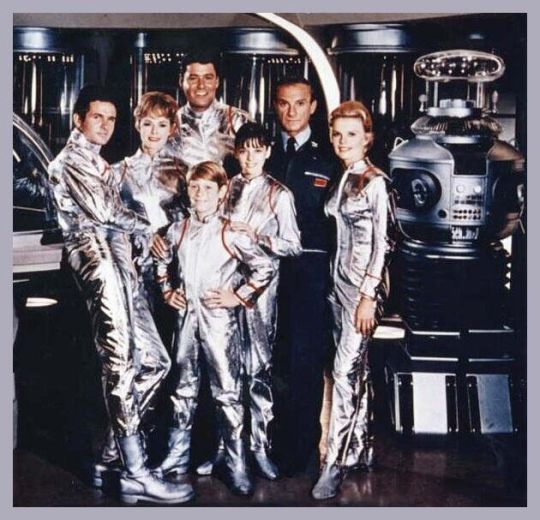
That scene was deleted. And Arthur went though the whole of Hitchhiker's in his dressing gown.

If deleted scenes are canon, then Arthur Dent is not wearing his dressing gown.
2K notes
·
View notes
